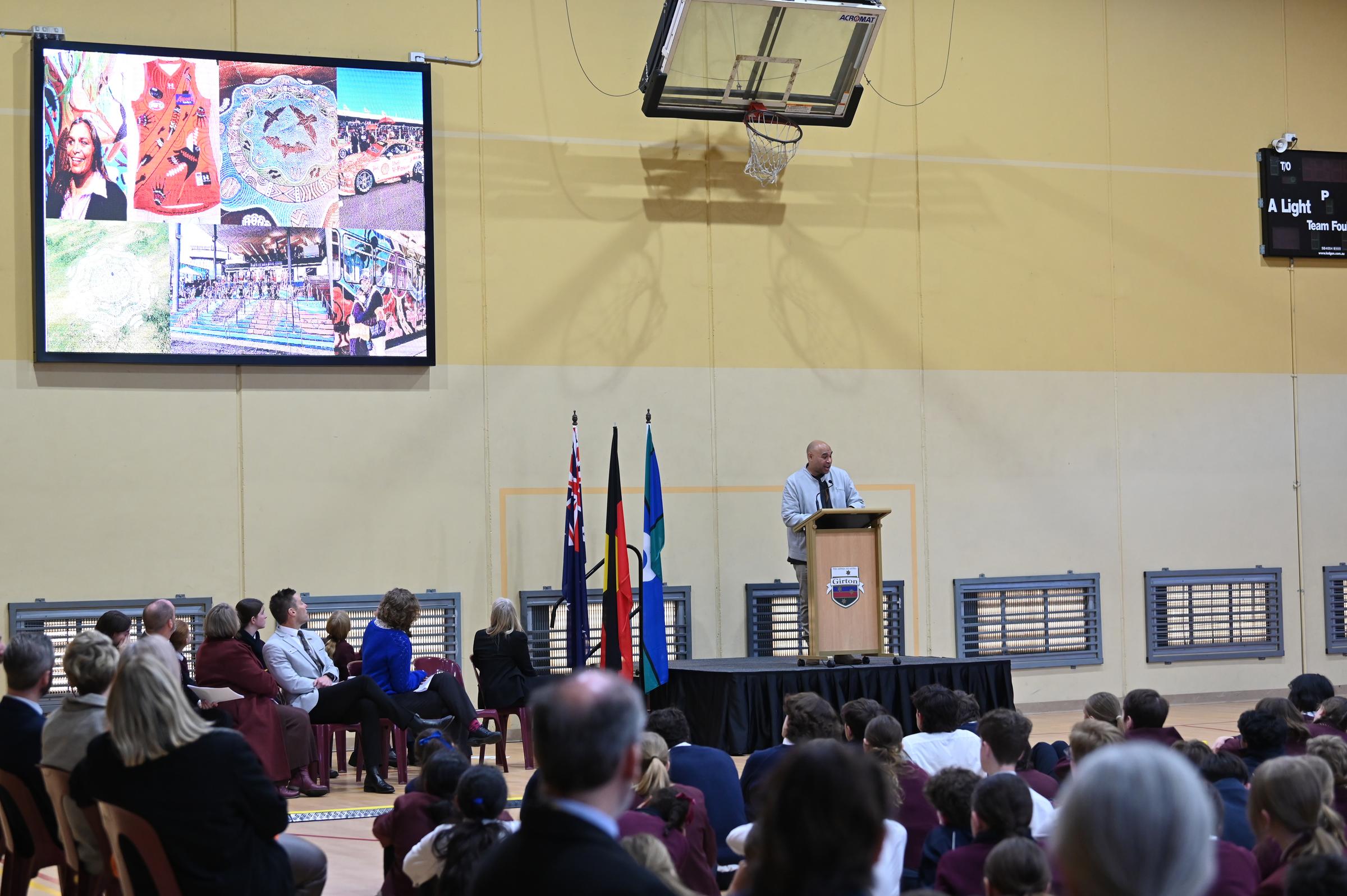Reconciliation Week and Sorry Day

Sunday, May 26 was National Sorry Day, a day when Australia comes together to recognise and commemorate the stolen generations. The following week (May 27 to June 2) marks Reconciliation Week.
At the Monday assembly we were lucky to have Mr Dixon Patten, an Aboriginal artist, come to speak to us about Reconciliation Week and the Stolen Generation. Dixon spoke about the importance of recognising the past so that we can make the future better. Questions have been raised by some about why we need to still apologise for something that happened in the past. Dixon spoke to us about six generations of his family that were impacted by the Stolen Generations and are still fighting for their rights today. He explained that, really, it wasn’t quite as long ago as some might think, and Aboriginal children are still 10.5 times more likely to be removed from their families. It was only in 1967 that Aboriginal people won the right to be counted as part of the Australian population. Before that, they were treated as part of Australia’s flora and fauna and as such, had no political or legal rights.
Reconciliation Week is a week to come together with Aboriginal and Torres Strait Islander people to reconcile and learn about their rich culture and history. It is a week to help each other understand the Indigenous perspective, respect their knowledge, achievements and stories, and reflect on how we can all play a part in bringing Australia closer to reconciliation.
This year’s theme for Reconciliation Week is Now More Than Ever. It conveys the message that now, more than ever, we need to come together, closer to a just and inclusive society. No matter what, we can all make the choice to fight for justice, freedom and equality for Aboriginal people and share this connection. Now more than ever, the work must continue to tell stories, understand history, and tackle racism together. We all have a role to play in building relationships, communities, cultures and futures with Aboriginal people.
Reconciliation Week began as the Week of Prayer for Reconciliation in 1933, and quickly gained support from Australia’s major faith communities. In 1996, the Council for Aboriginal Reconciliation held the first-ever National Reconciliation Week. 2001 saw around 300,000 people walking across the Sydney Harbour Bridge to show their support. Many other cities and towns held a walk-a-thon for this same purpose.
During Reconciliation Week in the Morey Foyer, students and staff were invited to write a message of support and empathy on Sorry Flags. These flags will be sewn together into a bunting that will be displayed in the Morey Building to remind us all that we have a part to play in the journey towards reconciliation. Reconciliation Week is 7 days, however we should use this as an opportunity to resolve to remember the Stolen Generations and work together towards a better and more inclusive future for all Australians.
Layla Turton (7 Riley) and Ruby McGowan (7 Jones)
on behalf of Girton Community Action Group

